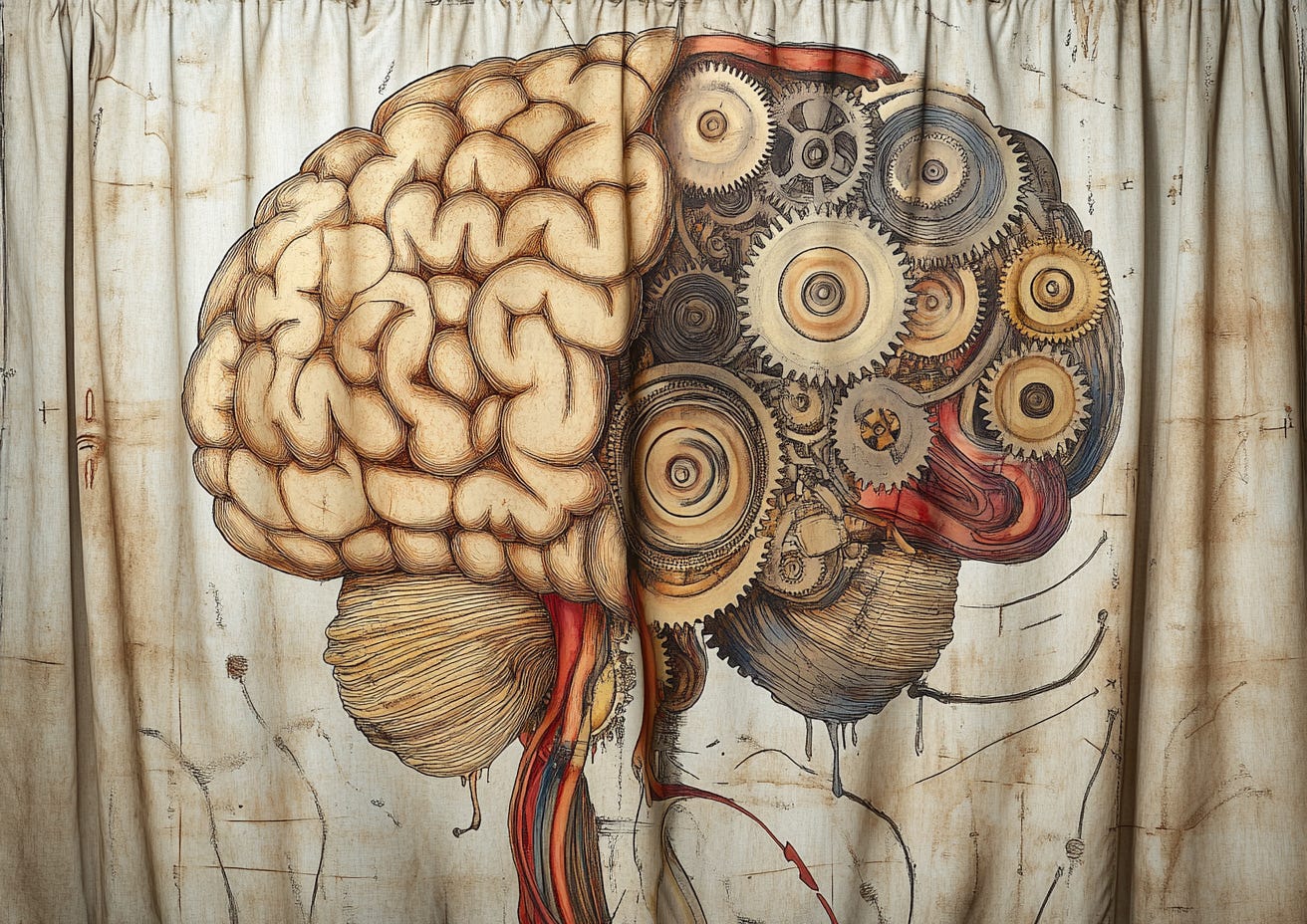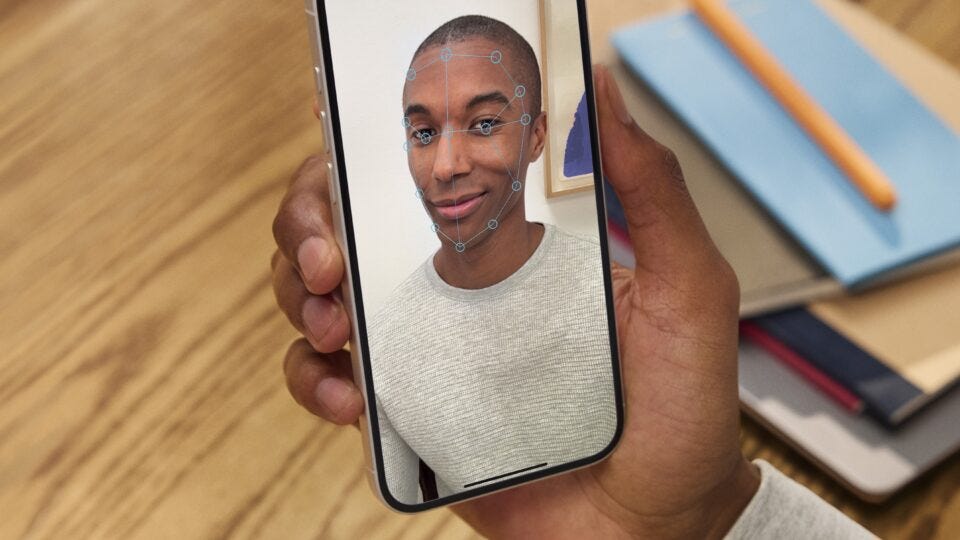Weekly Journal: Apple Study Debunks AI Reasoning Claims - Models Imitate, Not Think
[6 min read] Your weekend guide to getting ahead on the digital frontier. Apple study shows AI models aren’t thinking—they’re pattern-matching. Apple proves reasoning breaks under real complexity.
Happy long weekend to all Kiwis! Welcome to this week’s Weekly Journal 📔, your guide to the latest news & innovation in emerging technology, digital assets, and our exciting path to the Metaverse. This is week 131 of the 520 weeks of newsletters I have committed to, a decade of documenting our physical and digital lives converge. New subscribers are encouraged to check out the history & purpose of this newsletter as well as the archive.
- Ryan
🌐 Digital Assets Market Update
To me, the Metaverse is the convergence of physical & virtual lives. As we work, play and socialise in virtual worlds, we need virtual currencies & assets. These have now reached mainstream finance as a defined asset class:
🔥🗺️Heat map shows the 7 day change in price (red down, green up) and block size is market cap. BTC staying above USD$100k.
🎭 Crypto Fear and Greed Index is an insight into the underlying psychological forces that drives the market’s volatility. Sentiment reveals itself across various channels—from social media activity to Google search trends—and when analysed alongside market data, these signals provide meaningful insight into the prevailing investment climate. The Fear & Greed Index aggregates these inputs, assigning weighted value to each, and distils them into a single, unified score.
🗞️ Metaverse news from this week:
👓 Google x Warby Parker: A Stylish Play for Control of the Smart Glasses Metaverse
In a significant step toward reshaping digital identity and real-world interaction, Warby Parker has partnered with Google to co-develop a new generation of AI-powered smart glasses. Backed by up to $150 million in funding, the partnership aims to launch post-2025 and will integrate multimodal AI—capable of real-time contextual awareness—into prescription and non-prescription lenses designed for all-day wear. This is more than a hardware play; it’s a strategic push into the spatial computing layer of the metaverse, where digital services are delivered contextually through real-world interfaces. Google’s AndroidXR platform provides the backbone, while Warby Parker brings a legacy of sleek design and retail know-how—positioning this venture as a credible rival to Meta’s AI-enabled Ray-Bans.
Simultaneously, Warby Parker launched Advisor, a new AI shopping assistant that uses face-scanning tech to recommend eyewear based on individual facial geometry and style—essentially turning your phone into a personalised fitting room. Combined with its virtual try-on and home test kits, the brand is building an omnichannel bridge between physical products and digital identity. In a metaverse context, smart glasses represent a battleground for how people will access augmented experiences, overlay data onto the real world, and express themselves via digital/physical hybrids. As wearables evolve into interfaces for both AI and immersive content, Warby Parker and Google are betting big on a future where eyewear becomes your gateway to an always-on, context-aware metaverse.
Apple Study Debunks AI Reasoning Claims: Models Imitate, Not Think
A new research paper from Apple titled “The Illusion of Thinking” has thrown cold water on recent claims about the reasoning capabilities of frontier AI models like Claude, DeepSeek-R1, and o3-mini. The study finds that these Large Reasoning Models (LRMs) do not truly "reason"—they simply mimic reasoning patterns based on learned data.
Apple researchers developed a controlled puzzle environment to test how well these models handle tasks with increasing compositional complexity. Their findings revealed that LRMs break down entirely once problems exceed a certain level of complexity, even when given sufficient compute and context. In many low-complexity tasks, traditional LLMs outperformed reasoning-optimised models.
Three regimes emerged: standard LLMs winning on simple tasks, LRMs doing better on medium-complexity problems, and both collapsing on hard tasks. The models often fail to use explicit logic or consistent strategies, and instead rely on memorised heuristics that falter under cognitive pressure.
The study suggests we’re far from achieving AGI, and that many current benchmarks may overstate true reasoning abilities. As hype around AI continues to grow, Apple’s findings are a crucial reminder: today’s best models don’t reason—they simulate what reasoning looks like.
👓 Read of the Week: The Futurist Trap.
In this sharp and introspective essay, George Dillard dissects the seductive allure - and hidden danger - of futurism. Drawing on decades of tech prophecy and political theory, “The Futurist Trap” argues that our obsession with what’s next often blinds us to what’s here, now, and broken.
Key ideas:
🔮 Futurism as Escapism: Dillard warns that utopian visions of AI, the metaverse, and techno-liberation often serve as distractions from present-day inequalities and systemic dysfunction. The promise of tomorrow becomes a moral deferral, a way to excuse today’s inaction.
📉 Innovation ≠ Progress: Just because technology advances doesn’t mean society does. The essay challenges the assumption that every new wave—blockchain, XR, AI—will inherently fix human problems. Without structural change, innovation risks reinforcing the status quo.
📡 The Metaverse as a Mirror: Instead of offering escape, Dillard suggests the metaverse could be a hyperreal reflection of our existing social divides. Who owns the platforms? Who controls the data? Whose culture gets embedded in the code?
🧠 The Call for Techno-Social Grounding: The piece doesn’t reject technology—it demands we stop mythologising it. Real progress, Dillard argues, requires redistributing power, not just upgrading interfaces.
🎥 Watch of the week:
A 60 Minutes AI rollup: From April, a look at what's next for AI at Google DeepMind. From December, a story on Khanmigo, the AI tutor for students. From May, a story about the "digital bridge" helping paralyzed patients. From December, a report on the harm of AI "nudify" sites that create fake nudes. From November, a look at how training AI takes a toll on Kenyan workers. And from May, reports on the future of warfare.
AI Showcase🎨🤖🎵✍🏼: Has AI Transformed University for the Better?
In the Metaverse, AI will be critical for creating intelligent virtual environments and avatars that can understand and respond to users with human-like cognition and natural interactions.
This week’s spotlight turns to the impact of AI on higher education—
A recent survey of over 7,000 students worldwide found that 44% of UK students are excited about AI, and many are already using it to support their studies. One such student, Sunjaya Phillips of Oxford Brookes University, credits AI with giving her “reassurance” and improving her confidence—especially when brainstorming ideas or structuring assignments. “It definitely transformed my academic experience,” she says.
But alongside optimism lies a more cautious perspective. Dr Charlie Simpson, a senior lecturer and AI education commentator, notes that while AI can help students focus on meaningful learning, irresponsible use—like outsourcing thinking—undermines education entirely.
Universities are now grappling with how to adapt. Thought leaders like Prof Keiichi Nakata argue that AI is a double-edged sword: “It’s positive when used responsibly, but damaging when used just to cut corners.” Both Nakata and Simpson agree that the ability to effectively use AI will soon be as essential as IT skills, with employers expecting fluency across industries.
Notably, 78% of UK students fear AI will lead to job losses, yet many—like Phillips—see it as a support system rather than a threat. Her message: it’s time to reframe AI not as a replacement, but as a powerful tool to amplify human potential.
The verdict? AI is undoubtedly reshaping university life. Whether that change is for better or worse depends not on the technology—but on how we choose to use it.
That’s all for this week! If you have any organisations in mind that could benefit from keynotes about emerging technology, be sure to reach out. Public speaking is one of many services I offer.






